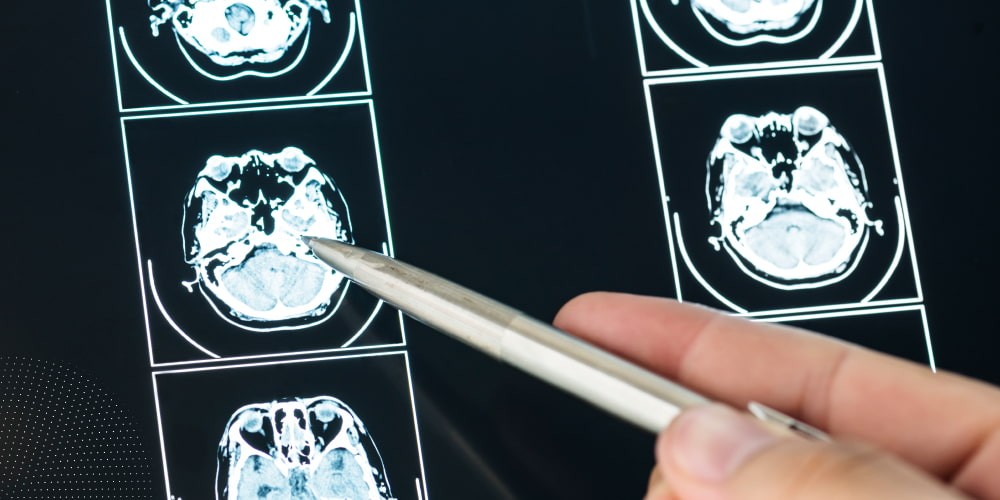Neurology and psychology are various branches of medicine. They bargain with different sorts of human well-being issues. Neurology centers on the conclusion and treatment of maladies influencing the nerves. And psychology deals with understanding and treating psychological problems and behavioral disorders. In general, the difference between neurological and psychological is:
- Neurology deals with the diagnosis, treatment, and research of nervous diseases. It includes epilepsy, stroke, migraine, and dementia. And such doctors study the nervous system’s structure, functioning, and dysfunction. These include the brain, spinal cord, and nerve ganglia.
- Psychology, on the other hand, deals with the study of human behavior and mental processes. It can be perception, attention, memory, thinking, emotions, and motivation. Psychologists study how people interact with others, develop, and adapt to the world. They also diagnose and treat mental conditions. Common ones include depression, anxiety, schizophrenia, and others.
So, the main difference between neurological vs psychological is that neurologists specialize in the physical aspects of brain and nervous system functioning, while psychiatrists study mental processes.
What Is a Psychiatrist?
A psychiatrist is a doctor with a higher medical education. They deal with the diagnosis, treatment, and prevention of mental disturbances. These include depression, phobias, suicidal attempts, and obsessive thoughts.
That is, a psychiatrist works with mental illnesses and can prescribe medications. The purpose of their work is to make the symptoms less obvious. It is what psychiatry neurology means. With the help of appropriate drugs, the doctor tries to correct the patient’s health.
Most often, people come to a psychiatrist with the following problems:
- emotional disorders and neurotic states;
- mood disorders (apathy, depressive disorders, etc.);
- prolonged anxiety;
- panic attacks, phobias;
- long-term sleep disorders;
- obsessive thoughts;
- eating disorders;
- auditory or visual hallucinations;
- behavioral disorders;
- violation of communication with the environment.
A psychiatrist can also check the effect of medication on the patient. There may be cases when the medicine does not work in neurology and mental illness. Then the doctor looks for another treatment solution. At the same time, they can use psychotherapeutic methods. For example, it is rational or cognitive-behavioral therapy. But the appointment of such treatment depends on the type of disease and its progression.
What Is a Neurologist?
Has the nervous system failed? In this situation, you need to consult a neurologist.
It is a specialist with a higher medical education. Their competence includes diagnosis of psychiatric and neurological disorders. And they also detect pathologies of the musculoskeletal system. During the appointment, doctors check the patient’s reflexes, muscle strength, and sensitivity. With the help of special tools and exercises, the neurologist determines the state of the peripheral and autonomic systems. Most often, people turn to this doctor with the next symptoms:
- Occurrence of a sudden and sharp headache;
- Frequent dizziness, fainting;
- Ringing and tinnitus;
- Violation of coordination of movements;
- Sleep problems, insomnia;
- Facial pain;
- Muscle weakness;
- Numbness, tingling sensation in the limbs;
- Pain in the back, lower back, and neck;
- Deterioration of memory.
The most frequent complaint with which people turn to a neurologist is a pain in the back or neck. These symptoms are associated with a failure of the nervous system. For this reason, neurologists take treatment in neurology and mental illnesses. Their main task is to detect damage to the nervous system and relieve it. So, it’s important to plan a timely visit to the doctor so that the treatment is easier.
What’s the Difference Between Neurological and Psychological?
Have you ever wondered about the dissimilarities in neurological vs psychological? While both fields are concerned with the workings of the human mind, they approach this from diverse angles.
- Neurology often refers to as the “hardware” of the brain. It focuses on the physical structures and processes of the nervous system. Neurologists use advanced imaging techniques to study the brain and nerves. Then, they diagnose and treat conditions that affect their systems.
- On the other hand, psychology refers to the “software” of the brain. It focuses on the subjective experiences and mental processes of individuals. Psychologists use various research methods to study human behavior, emotions, and thought processes.
So, neurology and mental illness have their unique perspectives and approaches. They both play important roles in understanding the complexities of the human mind. For this reason, they are often confused and considered the same. But there is great differences between neurological and psychological, and common ones include:
1. Focus of Study
Things that neurology vs psychology study is entirely different. After all, they focus on various disorders:
- Psychiatrists deal with the spiritual and mental processes of a person. They study the human brain to understand how their thinking works. That is, everything related to mental health is the task of a psychiatrist. They study people’s emotions, behavior and thinking. Thus, when problems arise with anxiety or fears, people turn to a psychiatrist.
- Neurologists study the physical structures and functions of the nervous system. They focus their attention on the design of the spinal cord and brain. Their task is to know how nerves work and how to prevent problems with them. It is what psychiatry neurology is. Also, these doctors study electrical signals in the nervous system. Thus, when there are pains, spasms and tingling in the body, a neurologist takes care of it.
2. Treatment
Neurological vs psychological treatment has its specifics and approaches:
- Neurologists can treat conditions such as migraines, epilepsy, back pain, and dementia. And among the most common methods of treatment are:
- Medicine
Doctors often prescribe it to reduce manifestations and improve the nervous system.
- Physiotherapy
This method restores movement coordination and balance.
- Surgical intervention
When the disease pinches the spinal cord or nerves, doctors perform surgery.
- Psychiatry has notable dissimilarities in treatment. And the most common options are:
- Antidepressants
Doctors prescribe them to patients with mental issues to enhance their minds.
- Psychotherapy
It helps to solve human emotional problems and mental disturbances.
- Electroshock therapy
It is a treatment method for depression, bipolar disorder, and other mental illnesses.
3. Methods of investigation
Each medical field has its unique method of researching certain diseases. And psychiatric and neurological disorders have their approaches to these methods:
- The primary research method in neurology is examining the patient’s nervous system. Neurologists do this using a variety of ways:
- reflectometry;
- electromyography;
- electroencephalography.
Such methods make it possible to assess the functional state of the nerves and establish a diagnosis.
- What is the primary research method in psychiatry neurology? It is a conversation with the patient. It helps to test their behavior, emotions, and cognitive processes. To study mental conditions, doctors use:
- various tests;
- questionnaires.
It allows you to assess depression, anxiety, suicide risk, and other issues.
4. Diagnostics
The next difference between neurological and psychological is diagnostics. In these two areas, approaches and strategies are various:
- Neurological diagnosis often includes a physical examination:
- Medical examination and history. The specialist collects data around the patient’s complaints and therapeutic history.
- Neurological examination. The specialist assesses reflexes and muscle quality.
- Extra studies. The doctor can prescribe computer topography or MRT if the disease is hard to detect.
- In psychiatry, diagnosis is usually based on observations of the patient’s manners:
- Clinical interview. A psychiatrist can learn about signs that state the illness.
- Standardized tests and questionnaires. These tools are for objectively assessing the patient’s mental status and signs.
- Psychiatric examination. It is a physical examination, including blood pressure, pulse rate, and skin condition. Also, doctors detect if there is a bond between psychiatric and neurological disorders.
A Word From Lone Star
Both neurological and psychological infections can significantly impact a person’s life. But the approach to diagnosis and treatment is entirely diverse. Because the difference between neurological and psychological is huge. The only thing in common is the nervous system, which causes physical and psychological problems. To prevent this from developing certain conditions, contact Lone Star Neurologists. We will help analyze your symptoms, diagnose the disease and cure it.
FAQ
- Is anxiety a neurological disorder or psychological?
It is both a neurological and psychological disorder. But the interplay between neurological and psychological factors can differ for each person. And there are different anxiety conditions, each with its unique causes and symptoms.
- What are the top 5 neurological disorders?
There are the top 5 neurological illnesses:
- Epilepsy;
- Alzheimer’s;
- Multiple sclerosis;
- Stroke;
- Migraine.
- Is ADHD considered a neurological disorder?
Yes. It is a neurological disorder because it involves abnormal activity in certain areas of the brain. This can result in symptoms such as hyperactivity, impulsivity, and inattention.
- What’s the general difference between mental illnesses and neurological diseases?
Mental illnesses are generally a reason for a combination of genetic, environmental, and psychological factors. They manifest in mood changes, behavior, and thought patterns. And neurological diseases are a reason for structural or functional abnormalities in the brain or nervous system. They cause tremors, muscle weakness, and bad coordination.













Please, leave your review
1 Comment
Dr Elijah Nkosi
07/01/2024
Great article that clearly outlines the difference between the two different medical conditions
Write a comment: